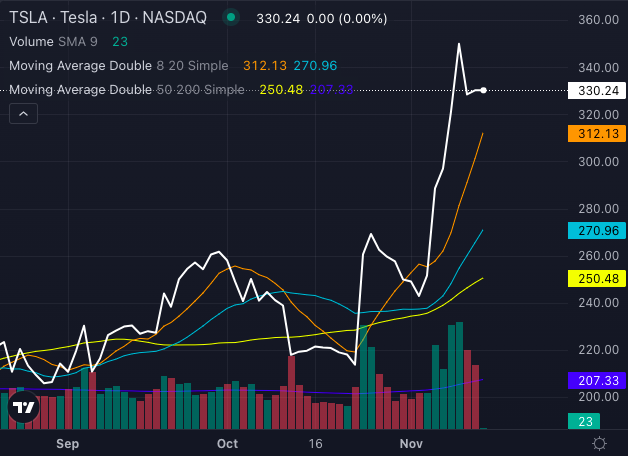Nvidia (NASDAQ: NVDA) stock has been on a rollercoaster ride, swinging back and forth on small news items and valuing at nearly $3 trillion in market cap. The stock’s recent volatility underscores investor uncertainty surrounding Nvidia’s future trajectory.
Recent events have showcased Nvidia’s sensitivity to macroeconomic data, interest rates, and broader economic sentiments. The stock’s erratic movements in response to economic indicators illustrate its intimate connection to prevailing market conditions.
With the looming threat of recession, concerns have surfaced about Nvidia’s performance given economic headwinds such as rising unemployment and sluggish consumer spending.
But how would Nvidia weather a recession? The answer to this question delves into a multifaceted realm.

Image source: Getty Images.
Unlocking the Relationship Between Nvidia and the Economic Cycle
Historically, the semiconductor sector has exhibited substantial cyclicality. Fluctuations in chip demand are intricately linked to economic trends and technological advancements, leading to swift shifts in inventory levels and pricing.
Nvidia, like its semiconductor peers, has experienced boom-and-bust cycles in the past. While the company soared during the crypto mining frenzy amid the pandemic, subsequent market corrections saw its stock plummet significantly, highlighting its susceptibility to market fluctuations.
Challenges to Traditional Cycles
Nvidia has recently witnessed unprecedented growth, with revenue tripling over four quarters and profit margins exceeding 60%. The company’s technological components are driving the AI revolution, garnering substantial demand from major players in the tech industry.
In a notable endorsement, tech visionaries like Larry Page and Elon Musk have lauded Nvidia for its pivotal role in the AI landscape. The relentless demand for Nvidia’s products, coupled with the financial prowess of its clientele, positions the company favorably even in economic downturns.
At a recent investor conference, Nvidia’s CEO Jensen Huang emphasized the overwhelming demand for the company’s offerings. Unlike many other businesses, Nvidia grapples with meeting sky-high demand rather than chasing customers in a market drought.
Implications for Nvidia Stock
Despite Nvidia’s robust standing, investors continue to treat the stock akin to traditional semiconductor equities. This dissociation from Nvidia’s actual resilience and growth potential belies the underlying strength of the business.
While external economic factors may impact Nvidia’s stock performance, the company’s strong fundamentals and unique market position suggest a disconnect between shareholder sentiment and operational reality. Investors could potentially capitalize on market overreactions by acquiring Nvidia shares during dips triggered by recession fears.
Considering an Investment in Nvidia
Before diving into Nvidia stock, prudent investors should factor in the bigger picture:
The Motley Fool Stock Advisor team recently highlighted several prime investment opportunities, excluding Nvidia from their top picks. Instead, they identified 10 other stocks poised for substantial returns.
Reflecting on Nvidia’s historical performance, the impact of a hypothetical investment in 2005 would have yielded staggering returns, underlining the value potential intrinsic in well-researched investment decisions.
By leveraging insights from services like Stock Advisor, investors can navigate the complex investment landscape, harnessing expert analysis and strategic guidance for long-term portfolio growth.



